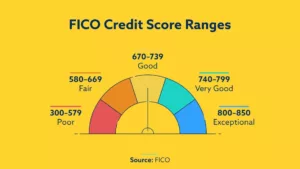
In January of 2011, federal regulations began to require lenders to send a Risk-Base Pricing Notice to consumers who have received less than favorable credit terms based upon their credit report and or their credit scores.
Risk-based pricing is used to determine credit terms such as interest rates and credit limits. The use of risk-base pricing is a common practice among lenders even though most consumers are less than knowledgeable about the practice.
The higher a consumer’s credit score, the more favorable the credit terms. The lower a consumer’s credit score, the less favorable credit terms will be.
The Risk-Base Pricing Notice essentially lets a consumer know they have received less than favorable credit terms compared to other consumers with better credit reports. It is only sent to approved applicants or applicants who did not receive the lender's best terms.
It is in no way a denial of credit but rather an explanation of why you received less than favorable credit terms. A consumer receiving a credit approval letter may get a separate Risk-Base Pricing Notice (RBP).
Update: Effective July 21, 2011, new legislation requires lenders using credit scores to grant credit must include the credit score along with additional related information in the RBP disclosure. Previously the RBP notice only informed you that your credit history is being used to set the credit terms and provided information to help you obtain and review your credit report.
Specifically the Risk-Base Pricing (RBP) Notice will contain the following:
Explanation of Credit Terms. The RBP will inform you that your credit history was used to determine the credit terms and that less favorable terms were offered compared to consumers with better credit histories.
Credit score and range of scores. The credit score used by the lender along with the score range for that particular credit scoring model will be included in the RBP. It is also gives you some key factors as to why your credit score is not better. Remember, lenders may use different credit scoring models as FICO offers industry-specific credit scores such as those used for auto lending or bankruptcy prediction. Those scores may be out of the range of the general-risk FICO scores, ranging from 300-850, most commonly used by the vast majority of lenders. The lender will document in the disclosure which credit scoring model was used.
Free Credit Report Offer. Consumers will be instructed on how to obtain a free credit report. Prior to the Risk-Base Pricing regulation, only consumers who were denied credit were entitled to a free credit report within 60 days of receiving an adverse notice. Now, consumers who are approved for credit but with less than favorable credit terms are able to obtain a free credit report within 60 days of receiving the notice.
Credit Reporting Agency Information. The credit reporting agency name and contact information will be included in the RBP notice.
Reminder to correct credit report mistakes. FICO and other credit reporting agencies get paid millions to compile information from multiple creditors and sources to create your credit history. The information could come from a variety of sources including but not limited to credit card companies, lenders, banks, mortgage companies, landlords (reported to Experian only), debt collectors, public records and even utility companies. That much information is bound to contain mistakes and errors. These mistakes and errors could be serious enough to adversely affect your credit score and ability to get approved for credit. It is your right to dispute inaccurate information contained in your credit report. Get your free Credit Score.











